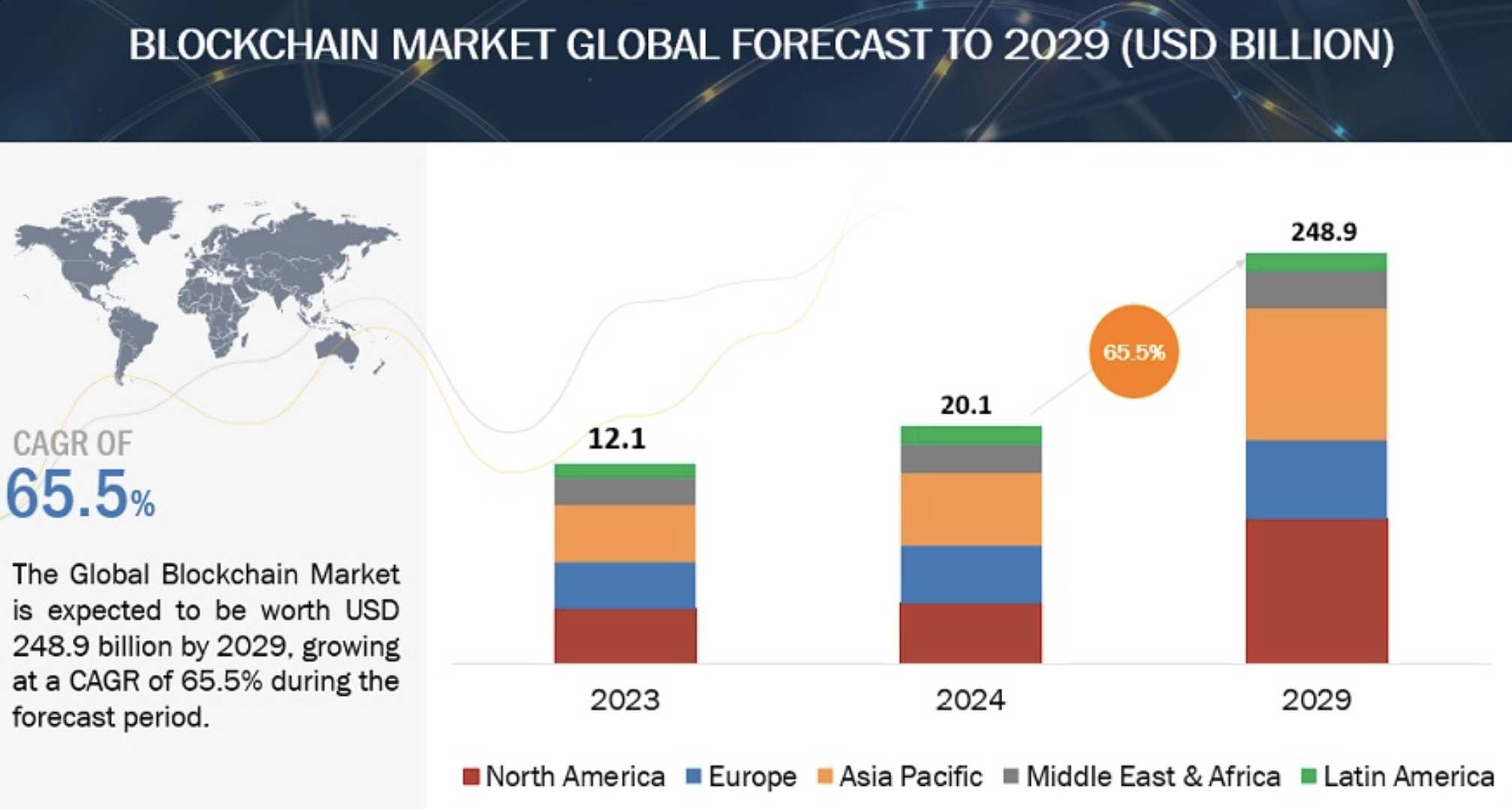Blockchain Technology Explained: Reasons for Speedy Adoption

In recent years, blockchain technology has emerged as a revolutionary force, transforming industries and reshaping the digital landscape. Its rapid adoption has caught the attention of businesses, governments, and individuals alike. But what exactly is driving this speedy embrace of blockchain? Let’s delve into the key factors propelling blockchain adoption across various sectors.
Mục lục bài viết
- 1 What is Blockchain Technology?
- 2 Key Reasons for Blockchain Technology’s Speedy Adoption
- 2.1 Enhanced Security and Data Integrity
- 2.2 Transparency and Trust
- 2.3 Decentralization and Elimination of Intermediaries
- 2.4 Cost-Effective Operations
- 2.5 Smart Contracts and Automation
- 2.6 Growing Demand for Privacy and Data Ownership
- 2.7 Blockchain in Digital Identity and Authentication
- 2.8 Tokenization and Asset Digitization
- 2.9 Blockchain for Social Impact
- 2.10 Global Push for Decentralized Finance (DeFi)
- 3 The Future of Blockchain Adoption
- 4 Take Action: Partner with BlockchainWork
What is Blockchain Technology?
Blockchain is a decentralized and distributed ledger technology that records transactions across multiple computers in a way that ensures the security, transparency, and immutability of data. Unlike traditional databases that store information in a centralized location, blockchain’s structure eliminates single points of failure by storing data across a network of nodes. Each block in a blockchain contains a list of transactions, and these blocks are linked in a chain, making the data within them secure and tamper-proof.
Blockchain’s immutability, transparency, and decentralized nature have accelerated its adoption across industries and fueled innovation in ways previously considered impossible.
>> Check out: The latest blockchain jobs
Key Reasons for Blockchain Technology’s Speedy Adoption
Blockchain’s rapid global adoption can be attributed to its ability to solve long standing issues in traditional systems. Here are some of the primary drivers behind its accelerated implementation:
Enhanced Security and Data Integrity
One of blockchain’s defining features is its enhanced security. Each transaction on the blockchain is encrypted, timestamped, and linked to previous transactions, creating an irreversible and secure chain of information. This tamper-resistant quality ensures the integrity of data and builds trust among users. Unlike traditional databases that can be compromised, blockchain’s decentralized structure makes it extremely difficult for malicious actors to alter data, making it particularly valuable in sectors that handle sensitive information, such as finance and healthcare.
With increasing cybersecurity threats worldwide, businesses are rapidly adopting blockchain as a robust solution to ensure data integrity and protect user information.
Transparency and Trust
Blockchain’s transparency is one of its most attractive features, especially in industries where trust is paramount. With blockchain, all transactions are visible to the participants, ensuring transparency and accountability. This transparency reduces the chances of fraud, corruption, and disputes, as every participant can access a shared version of the truth.
In industries such as supply chain and logistics, where data discrepancies can lead to inefficiencies and losses, blockchain ensures transparency from origin to destination. As a result, businesses are increasingly using blockchain to enhance trust with their partners, customers, and regulators, accelerating its adoption.
Decentralization and Elimination of Intermediaries
Blockchain technology enables peer-to-peer transactions, eliminating the need for intermediaries. In traditional financial systems, intermediaries such as banks facilitate transactions, adding costs and complexity. Blockchain’s decentralized nature allows for direct interactions, reducing the time and costs associated with middlemen.
This decentralized model is particularly transformative in financial services, where blockchain-enabled solutions like decentralized finance (DeFi) are providing people with direct access to financial products without banks. Businesses are drawn to blockchain’s ability to simplify transactions, minimize fees, and streamline operations, leading to rapid adoption across sectors.
Cost-Effective Operations
Blockchain technology can significantly reduce operational costs by automating tasks that previously required manual intervention. For example, in the supply chain industry, blockchain automates the tracking of products and inventory, reducing the labor and administrative costs associated with these tasks. Blockchain’s automation capabilities also simplify regulatory compliance by creating a transparent and auditable record of transactions.
The potential cost savings offered by blockchain have encouraged its adoption across various sectors, as businesses look to reduce expenses while maintaining efficient and accurate processes.
Smart Contracts and Automation
Smart contracts are self-executing contracts with the terms of the agreement directly written into code on the blockchain. These contracts automatically execute actions when predetermined conditions are met, reducing the need for human intervention. Smart contracts are widely used in finance, insurance, and real estate to automate processes such as payments, claims, and property transfers.
The automation provided by smart contracts enhances efficiency, reduces errors, and ensures compliance, leading businesses to adopt blockchain solutions that support these capabilities. Companies are increasingly interested in blockchain’s ability to streamline complex processes and mitigate operational risks.
Growing Demand for Privacy and Data Ownership
Data privacy has become a top priority for individuals and businesses alike, particularly with the rise of data breaches and privacy regulations such as GDPR. Blockchain gives individuals more control over their data, allowing them to share information selectively and retain ownership over their personal information.
The focus on user privacy and data sovereignty has led to the adoption of blockchain technology in industries where data ownership is crucial, such as healthcare and finance. Blockchain’s ability to offer enhanced privacy while maintaining security and transparency is a major factor driving its rapid adoption.
Blockchain in Digital Identity and Authentication
Blockchain technology is revolutionizing digital identity and authentication by offering secure, self-sovereign identities that users can control. With a blockchain-based identity, individuals no longer need to rely on centralized authorities for verification. Instead, they can use their blockchain-based identity to access services, vote, or transfer assets securely.
This shift in identity management is particularly relevant in finance and government, where digital identity plays a key role. Blockchain’s promise of secure digital identities has led to its adoption in sectors that require reliable and accessible identification systems.
Tokenization and Asset Digitization
Blockchain allows for the tokenization of assets, enabling real-world assets such as real estate, art, and stocks to be represented digitally on the blockchain. Tokenization makes these assets more accessible, liquid, and transferable. For example, real estate tokenization allows individuals to buy fractional ownership of properties, making real estate investments more inclusive.
Asset digitization has become popular in industries seeking to democratize access and increase liquidity, contributing to blockchain’s rapid growth. Tokenization has seen widespread adoption in finance, real estate, and art, as it unlocks new opportunities for investment and ownership.
Blockchain for Social Impact
Blockchain technology is being used to tackle social issues, such as providing transparency in charity donations, tracking the supply of sustainable products, and ensuring fair wages in the gig economy. Social enterprises and non-profits are increasingly adopting blockchain to ensure accountability and transparency in their operations.
This application of blockchain for social good has accelerated its adoption among organizations focused on creating positive social and environmental impact.
Global Push for Decentralized Finance (DeFi)
Decentralized finance, or DeFi, is a blockchain-based financial ecosystem that aims to offer financial products and services without relying on traditional financial institutions. DeFi enables people to lend, borrow, trade, and invest in assets without banks, using blockchain technology to ensure transparency and security. DeFi’s appeal lies in its accessibility, allowing individuals worldwide to participate in financial activities without intermediaries.
The rapid growth of the DeFi sector has been one of the primary drivers of blockchain adoption, as individuals and businesses explore alternative financial solutions that align with the decentralized ethos.
The Future of Blockchain Adoption
The speedy adoption of blockchain technology is driven by its unique combination of security, efficiency, transparency, and innovation potential. As the technology continues to evolve and mature, we can expect to see even more widespread adoption across industries and applications.
According to Markets And Markets (2023), The global blockchain market size is projected to grow from USD 20.1 billion in 2024 to USD 248.9 billion by 2029 at a Compound Annual Growth Rate (CAGR) of 65.5% during the forecast period. For businesses looking to stay ahead of the curve and leverage the power of blockchain, now is the time to explore its potential. Whether you’re in finance, healthcare, supply chain management, or any other industry, blockchain has the potential to revolutionize your operations and create new opportunities for growth and innovation.

Blockchain market global forecast to 2029 (Source: Markets And Markets)
Take Action: Partner with BlockchainWork
Are you ready to embrace the blockchain revolution? BlockchainWork, the leading blockchain talent community in Vietnam, is here to help you navigate this exciting technology. BlockchainWork provides career information, market trend updates, and job opportunities for professionals in the Blockchain – Web 3.0 field. The company has partnered with more than 200 blockchain businesses, organizing numerous networking activities to contribute to the development of the blockchain industry. By creating an employer account with BlockchainWork, you can post blockchain jobs for free and connect with top-tier blockchain professionals who can drive your projects forward.
>> See more: BlockchainWork’s Partnership Programme
BlockchainWork
- BlockchainWork website: https://blockchainwork.net/
- Post blockchain job FREE: https://blockchainwork.net/employer-signup
- Contact us: contact@blockchainwork.net
- Sign up as candidate for blockchain jobs: https://blockchainwork.net/candidate-signup
Reference:
Blockchain Market by Component, Provider, Type, Deployment Mode, Organization Size, Vertical and Region – Global Forecast to 2029
>> You may be interested in:
Finland-Vietnam Labour Mobility Connect: Promoting global Talent Connection
On January 14, 2025, BlockchainWork was honored to participate in the Finland-Vietnam Labour Mobility Connect Business Forum, organized by Team Finland and Work in Finland in Ho Chi Minh City. This event aimed to enhance cooperation in international recruitment and…
January 2025 Blockchain Jobs in Vietnam: Trends and Insights
In January 2025, the blockchain job market in Vietnam showed an upward trend and continued to witness vibrant activities. BlockchainWork, Vietnam’s leading blockchain talent community, officially released a comprehensive report on January 2025 Blockchain Jobs in Vietnam.
Top 10 Frequently Asked Interview Questions for Blockchain Developer with Answers
As blockchain technology continues to disrupt industries and gain widespread adoption, the demand for skilled blockchain developers has skyrocketed. Companies across a wide range of industries are looking for talented individuals with expertise in designing, developing, and deploying…
Pros and Cons of Social Media Recruitment
Using social media in recruitment is an extremely popular form in today’s era. When social networks can be applied in many fields, including recruitment. Using social networks as a recruitment tool brings many significant benefits such as saving…
Niched Job Board vs SNS: Save Hours with BlockchainWork for Blockchain Talent
In the fast-evolving world of blockchain technology, finding the right talent can be a daunting task. With the increasing demand for skilled professionals in this niche sector, employers are often faced with the challenge of sifting through countless…
Nhận thông tin mới nhất về sự kiện BlockchainWork
Đăng ký và thông báo tất cả các việc làm liên quan










